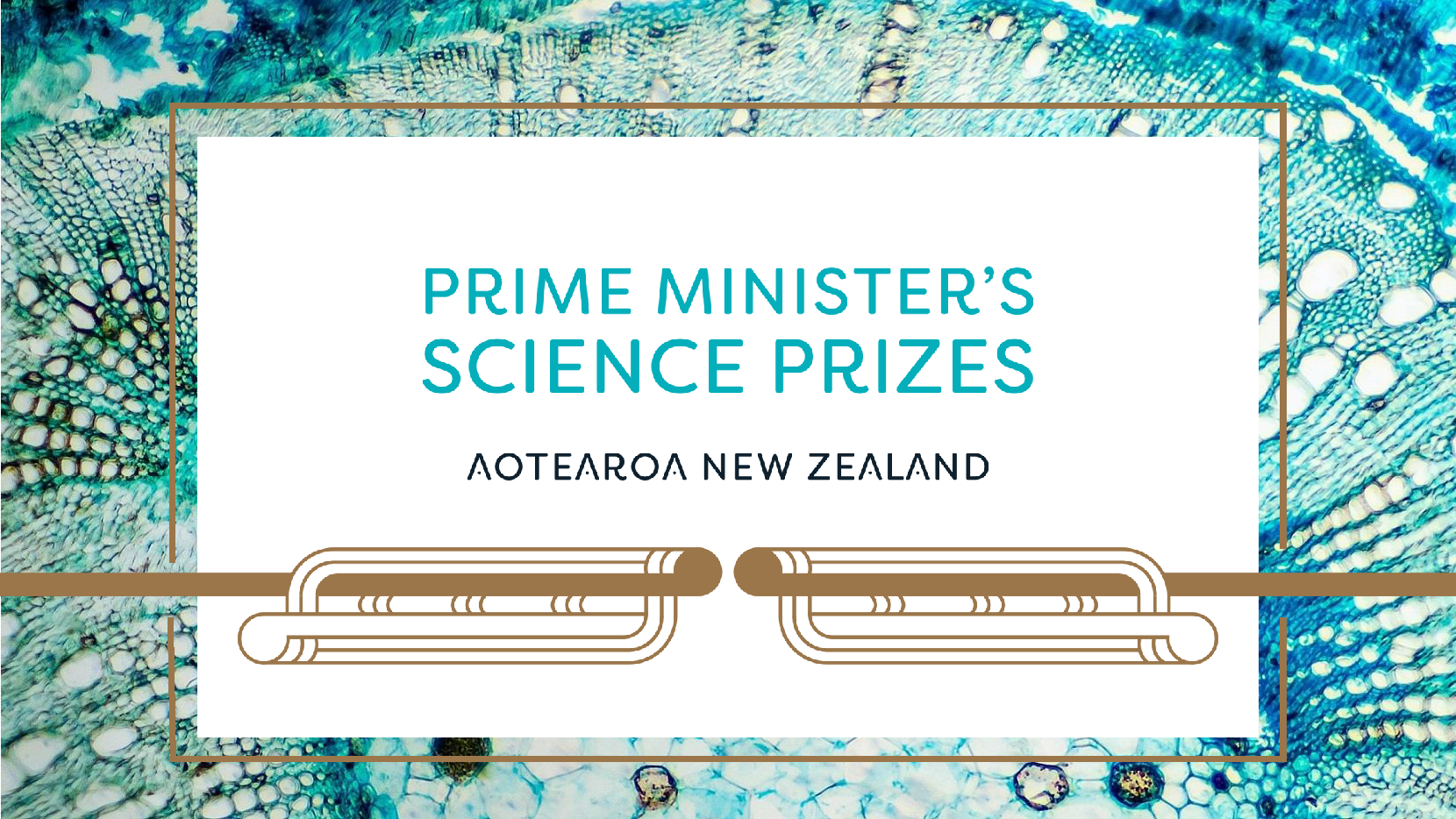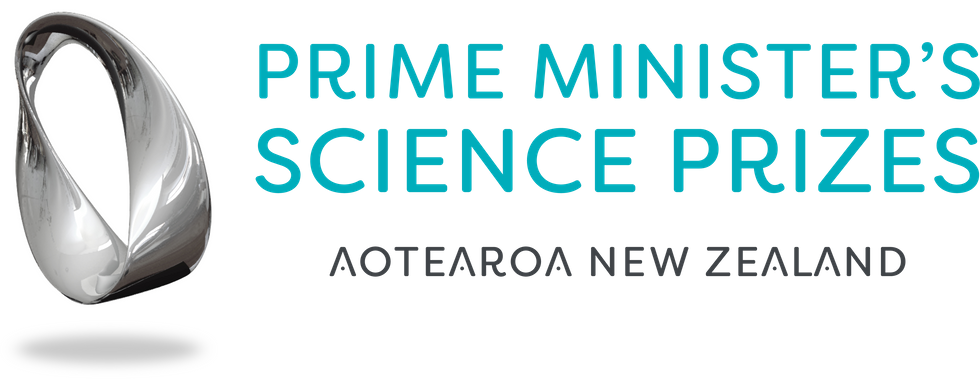Prime Minister’s science prizes recognise work in cancer genetics, psychology of music, communication of volcanic risk, student engagement, and soil science

An innovative partnership that led to discovery of the gene causing inherited stomach cancer, a scientist uncovering the psychological underpinnings of music, and a volcanologist communicating both the wonder and risks of volcanoes have been recognised in the latest Prime Minister’s Science Prizes. A science teacher who values each student and seeks to find ways to engage their natural curiosity and a student testing soil samples around Northland to map the locations of ‘aggressive’ soils were also recognised.
The Prizes were presented by Prime Minister of New Zealand, Rt Hon Christopher Luxon, and Minister of Science, Innovation and Technology and Minister for Space, Hon Judith Collins, at the prize ceremony at Parliament on 1 May 2024.
The winner of the Prime Minister’s Te Puiaki Pūtaiao Matua a Te Pirimia Science Prize 2023 for transformative impact is the Hereditary Diffuse Gastric Cancer Team led by Professor Parry Guilford FRSNZ, from Ōtākou Whakaihu Waka | University of Otago, in conjunction with Kimihauora Health and Research Clinic in Mount Maunganui.
This prize is awarded for the innovative partnership between members of the McLeod whānau and their community, cancer geneticists from the University of Otago, and clinicians from Tauranga Hospital. Together they identified a genetic mutation in the CDH1 gene which was causing members of the McLeod whānau to die from stomach cancer at a young age. The researchers developed a genetic test which gives whānau members the ability to understand their risk of cancer and take life-saving action.
Since then, the genetic test has enabled other families to discover whether they also have mutations in the CDH1 gene, and has saved many hundreds of lives in Aotearoa New Zealand and around the world.
For testing and surgery, the clinicians at Tauranga Hospital have embraced a Māori perspective of not only treating each patient, but their whole family and community.
The project continues to deliver transformative impact, with multiple strands, and remains whānau-led in many aspects.
This enduring partnership began almost 30 years ago, and serves as an exemplar of how to meet a community’s needs and how to uphold cultural values and data sovereignty within healthcare research.
Parry says it has been an “utter privilege” to have been part of this project for most of his working life.
“I think this type of research is way more likely to last… it will carry on because everyone owns the project, everyone feels part of the project, and we all go forward in the same direction,” – Parry Guilford.
Read media release about this prize >
The Prime Minister’s Te Puiaki Kaipūtaiao Maea MacDiarmid Emerging Scientist 2023 is Dr Samuel Mehr, a Rutherford Discovery Fellow based at the School of Psychology at Waipapa Taumata Rau | University of Auckland.
Samuel has been recognised for his work on the cognitive science of how humans perceive and produce music, using cutting-edge tools and theories from disciplines as diverse as data science, evolutionary anthropology, psychology, linguistics, and music studies.
One of the tools he developed is a large-scale citizen-science project called ‘The Music Lab’ where about a million participants are recruited each year to play online games that test their music processing abilities.
Another track of his research seeks to understand how infants respond to music and whether music can be used by parents to modulate their babies’ emotions.
His research shows that music is a pervasive part of what it means to be human.
“There’s always something there in the minds of people all over the world, wherever they are, whatever their background, that prepares them to hear music, understand music and motivate them to produce music,” – Samuel Mehr
Read media release about Samuel’s prize >
The Prime Minister’s Te Puiaki Kaiwhakaako Pūtaiao Science Teacher 2023 is Madeleine Collins, a chemistry and science teacher and Associate Head of the science faculty at Green Bay High School in Auckland.
Madeleine makes each student feel valued, and provides opportunities for hands-on experiences to sparktheir innate curiosity. Incorporating Te Ao Māori values and mātauranga into her lessons is also really important to Madeleine.
Outside the school, Madeleine has been a facilitator of the Callaghan Science Academy for the past 12 years, where she trains teachers to implement school-wide programmes for hands-on science. She has also been part of a team advising the Ministry of Education on the refresh of the science curriculum.
“I believe that science is enchanting and exciting and full of joy, and should provoke curiosity. It’s all about the world around us,” –Madeleine Collins
Read media release about Madeleine’s prize >
The Prime Minister’s Te Puiaki Whakapā Pūtaiao Science Communicator 2023 is Professor Ben Kennedy, who is based at Te Whare Wānanga o Waitaha University of Canterbury in the School of Earth and Environment.
Ben has always loved sharing his passion for volcanoes with children, but his experiences during the ‘media frenzy’ following the eruption of Whakaari White Island in 2019 made him reevaluate his approach to science communication. He now seeks to communicate both the wonder and the risks of volcanoes in ways suited to the needs of communities and potential visitors.
He is justifiably proud of VolcanoFest, a festival he organised to run, alongside a major volcanology conference, to brought volcano scientists, science communicators and the public together. Similar ‘Fests’ are now being run by others.
Ben is also working with various communities to develop innovative ways to communicate information about volcanoes at visitor centres, both in Aotearoa New Zealand and in Pacific Island countries.
“I’ve learnt that volcano science communication has to be inclusive and sensitive, and it works best when it integrates the expertise and experiences of the broader scientific and local community,” Ben Kennedy
Read media release about Ben’s prize >
The Prime Minister’s Te Puiaki Kaipūtaiao Ānamata Future Scientist 2023 is Sunny Perry, a Year 13 student at Kerikeri High School in Northland.
Sunny won the prize for her research project to test for and map the presence of highly corrosive soils in Northland. These soils are naturally rich in iron sulfides, and therefore can oxidise to produce sulphuric acid. This acid can harm human health and affect fish, animals, and plants. The acids can also affect concrete and metal structures, resulting in costs and risks of failure. This risk has not been well-studied in New Zealand, compared with Australia and other countries.
Sunny adopted a method from Australia and tested 480 samples from 20 sites across the Far North region. She developed a Geographic Information System (GIS) map to help her predict sites which might have these soils – often former wetlands—and she has now updated the map to include the soil-testing results.
“With further refinement, I’ll have a map that can be used by land developers and councils to show which soils needs to be treated and which soils to avoid,” – Sunny Perry.
Read media release about Sunny’s prize >
